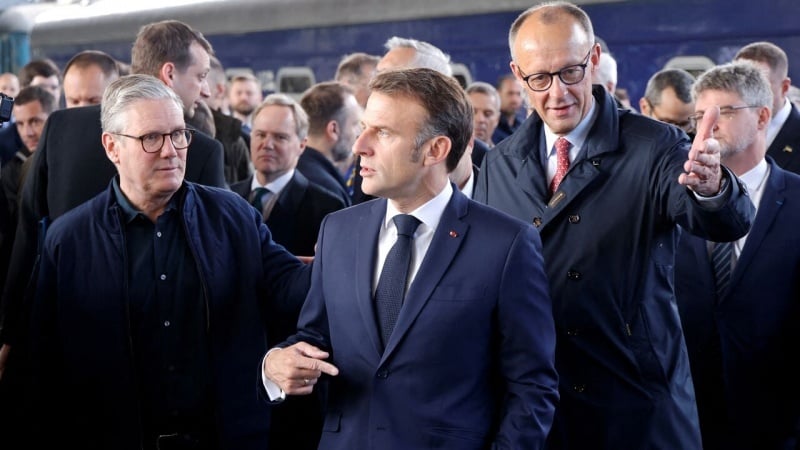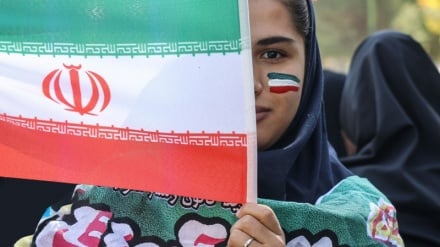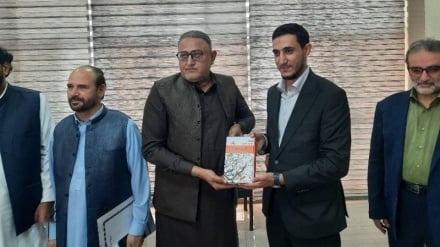U.S. think tank warns: Activating the Snapback mechanism against Iran is a risky gamble
-

U.S. think tank warns: Activating the Snapback mechanism against Iran is a risky gamble
Pars Today – In an article titled “Europe’s Gamble on Activating the Snapback Mechanism Risks Destroying Diplomacy with Iran,” the American think tank Quincy wrote that if Europe chooses coercion over cooperation, the window of opportunity may be completely closed.
In an article, the Quincy Institute wrote that Europe appears ready to move from the stage of threats to that of action. According to reports, the three European countries— the UK, France, and Germany—are likely to begin the UN snapback mechanism process this week.
Pars Today notes that this mechanism, established under the 2015 Iran nuclear deal (JCPOA), allows any participating party to reinstate pre-2015 UN sanctions if deemed necessary.
This mechanism has a key feature that makes it a powerful tool. Normally, the UN Security Council operates on the principle that imposing sanctions requires a positive consensus among its members. However, under the snapback mechanism, this logic is reversed.
Once activated, a 30-day countdown begins. At the end of this period, the sanctions are automatically reinstated unless the Security Council votes to extend their suspension. This means that any permanent member of the Council can effectively ensure the return of sanctions with a single veto.
Under these circumstances, Europe’s gamble on the snapback mechanism appears less a path to restoring cooperation and more an attempt to force Iran into short-term concessions. Rather than rebuilding trust, this approach risks trapping the parties in a cycle of pressure and retaliation—one with no clear resolution.
Even the enforceability of the snapback mechanism is in doubt. Russia and China are almost certain to reject the unilateral reimposition of sanctions, which would create gaps in implementation and result in sanctions being applied inconsistently across the international system. Such a scenario would undermine not only the JCPOA but also the credibility of the UN Security Council.
According to the report, Europe believes there is an alternative path: extending the “October 2025 sunset” provision if Iran fully resumes cooperation with inspectors and enters talks with Washington. However, since this proposal is tied to the snapback threat, diplomacy is compressed into a tight 30-day ultimatum.
Effectively, the three European countries are demanding immediate concessions from Iran, including unrestricted IAEA access to sites damaged during the June attacks, full reporting on uranium stocks enriched to nearly 60%, and the resumption of serious Iran–U.S. negotiations—all under the looming threat of reinstated UN sanctions.
The risks of this path are very serious. If the three European countries fail to reach an agreement and follow through on their threat, the implementation of sanctions will be highly uncertain, as Russia and China are almost certain to reject their unilateral reimposition. In response, Tehran could escalate nuclear ambiguity or even move toward withdrawing from the Nuclear Non-Proliferation Treaty (NPT)—a course that Iranian officials have repeatedly warned about.
However, there are more constructive ways to maintain oversight and create a diplomatic space. Iran was targeted while at the negotiating table, and according to some, an agreement was nearly within reach. Trust is a two-way street, and it is now Europe’s responsibility to act as a reliable mediator, rather than an escalatory force, in the triangular tension between the U.S., the Israeli regime, and Iran.
Instead of relying on threats, Europe and its partners could pursue a short-term technical extension of the timeline in UN Security Council Resolution 2231. This measure could be paired with a temporary package of reciprocal actions and the targeted lifting of certain sanctions—steps that would restore sufficient inspector access, maintain oversight, and provide tangible economic benefits for Iran.
This is the essence of diplomacy: “calculated give-and-take, not unilateral demands against nothing.” If Europe chooses coercion over cooperation, however, the window of opportunity could be completely closed.


